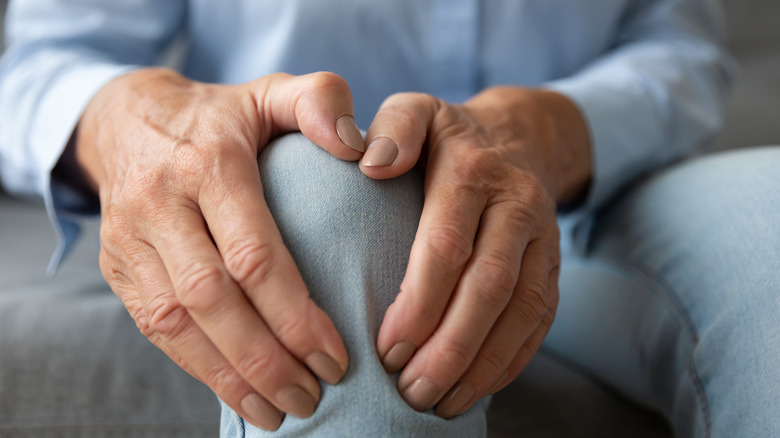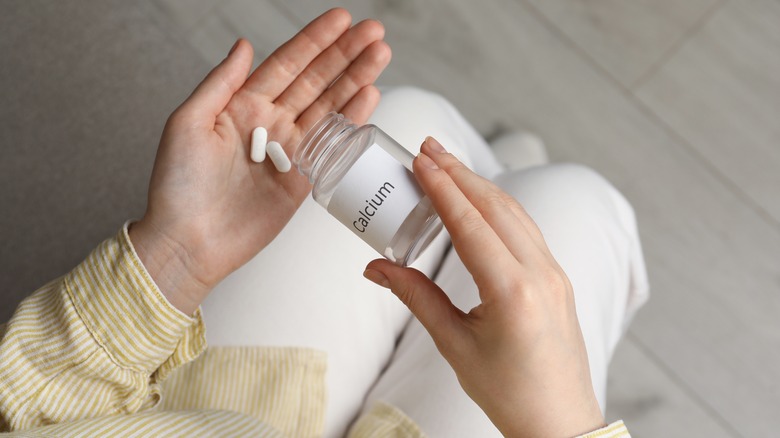Too Much Calcium Can Actually Weaken Your Bones - Here's How
Critically important for bone mineralization, calcium carries a lot of weight when it comes to responsibility — literally. In fact, calcium reportedly makes up as much as 2% of an adult's body weight (via The National Academies Press). Even more, nearly 100% of it resides in our bones and teeth.
While one's recommended daily intake for calcium will vary based on age, health status, and other factors, it's suggested that people between the ages of 19 and 50 get up to 1,000 milligrams of calcium daily, according to the National Institutes of Health. Much of the calcium our body requires can be pulled from food sources, such as milk, yogurt, and beans, as well as certain fruits, vegetables, and more. For other people, they may use supplements to get the amount of calcium they need.
However, there is such a thing as calcium overload. In fact, rather than strengthening our bones, having too much calcium in our blood can have the opposite effect and actually result in weaker bones.
Causes of hypercalcemia
It's not just over-supplementation that can pose a risk of too much calcium in the body. Rather, certain health conditions, high amounts of vitamins A and D, and the use of over-the-counter antacid products can also boost calcium levels in the bloodstream (via Cleveland Clinic). Pair this with overconsumption of calcium through food sources or supplements, and one may stand at an increased risk for hypercalcemia.
Those with hypercalcemia may experience bone pain, muscle aches, headache, fatigue, kidney stones, memory difficulties, and increased urination, among other potential symptoms. In some cases, the excess calcium may have been leaked into the bloodstream from the bones themselves. This can occur in people with overactive parathyroid glands, which prompt the bones to release calcium when the body isn't thought to be getting enough, according to experts at the Mayo Clinic. Hypercalcemia can affect various systems within the body and without treatment, it can progressively increase one's risk for certain health conditions such as kidney failure, arrhythmia, dementia, and osteoporosis, as one's bones continue to lose more calcium.
How to maintain a healthy calcium intake
To reduce your risk of developing hypercalcemia, it's best to stick with natural sources of calcium. "It's better to get your calcium from food or drink than to take it in pill form," cardiologist Dr. Leslie Cho tells the Cleveland Clinic. "Your body is designed to absorb vitamins and minerals from your diet." Sardines, spinach, kale, and salmon with soft bones can be particularly great calcium-rich options, as they are highly absorbable by the body. In addition, staying adequately hydrated and being mindful of how much calcium you're taking daily can also help ensure you're not getting more than you need.
Alternatively, focus on preserving the calcium that your body already has. You can do this by not smoking, avoiding overconsumption of sodium, not taking antacids too frequently, and minimizing your caffeine intake, all of which can otherwise contribute to calcium loss. Should you experience abdominal pain, increased thirst, and increased urine output, amongst other potential indicators of hypercalcemia, be sure to reach out to your physician.



